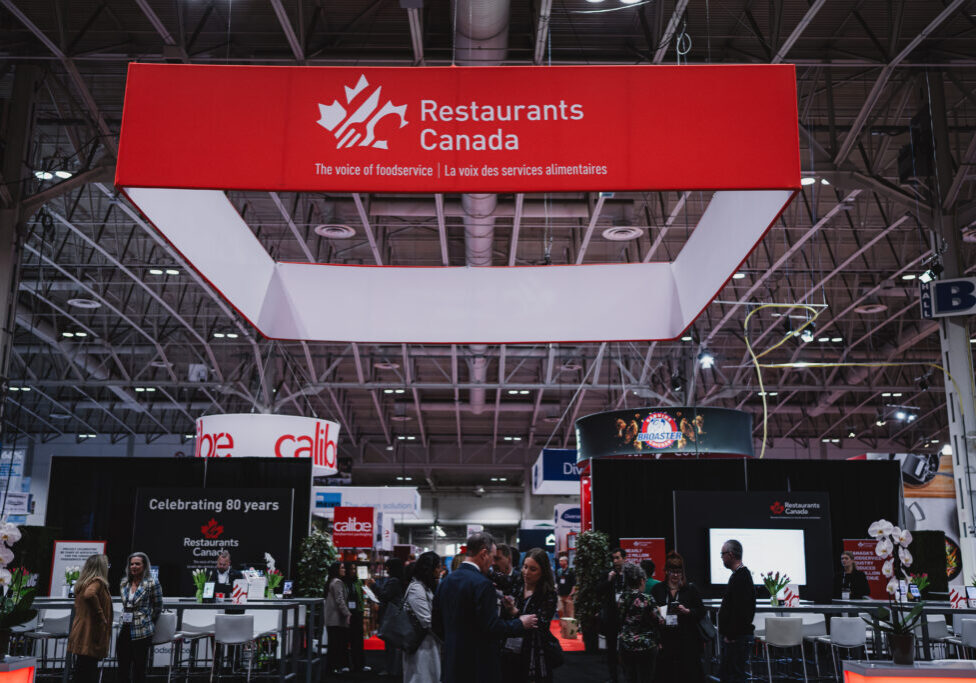Less Tech, More Touch
How AI Empowers Independent Operators to Focus on Hospitality

In today’s fast-paced restaurant industry, success isn’t just about offering great food or trendy decor—it’s about creating memorable guest experiences. Yet, as competition intensifies and operational demands grow, restaurateurs often find themselves overwhelmed with tasks that take them away from what they do best: delivering exceptional hospitality.
While making the time to explore the potential of Artificial Intelligence (AI) tools may feel like an elective pursuit, it’s an investment with the potential to transform aspects of operations and marketing by automating time-consuming processes, allowing operators to focus more on the human touch that sets their establishments apart.
The Balancing Act: Technology vs. Hospitality
The rise of AI in restaurant marketing has created a pivotal shift in how operators manage their time and resources. Artificial intelligence, once a concept confined to futuristic predictions, is now a practi

cal solution that’s helping restaurants streamline operations, improve marketing strategies, and ultimately, create more time for the personal interactions that define great hospitality.
AI’s appeal lies in its ability to handle the heavy lifting of data analysis, customer engagement and marketing automation. This doesn’t just enhance efficiency—it liberates restaurateurs from the digital grind, enabling them to channel their energy back into the guest experience.
Small, independent restaurant operators might feel that AI is out of reach due to budget constraints or lack of technical expertise, but in reality, there are several accessible ways they can leverage AI to streamline their marketing efforts. Here’s how:
1. Personalized Email Marketing
Independent operators can use AI-powered email marketing platforms like MailChimp or Constant Contact, which offer built-in AI tools to segment customers based on their behaviour, preferences, and past interactions. These platforms can automatically personalize email content, such as offering a discount on a customer’s favourite dish or promoting a special event that aligns with their interests. This level of personalization, previously only available to larger chains, helps build loyalty and drives repeat business without requiring significant time investment
2. Social Media Management
Managing social media can be time-consuming for small operators, but AI tools like Hootsuite, Buffer, or Sprout Social can automate much of the work. These tools use AI to analyze which types of posts perform best and suggest optimal times for posting. They can also automatically schedule posts and even respond to common customer inquiries. For example, if a customer frequently engages with posts about new menu items, the AI can ensure that similar content is prioritized in their feed. This keeps the restaurant top-of-mind without requiring constant manual oversight.
3. Chatbots for Customer Engagement
Even small restaurants can implement AI-powered chatbots on their websites or social media pages. Tools like ManyChat or Chatfuel allow independent operators to create custom chatbots that can handle reservations, answer common questions (e.g., opening hours, menu items), and even take orders. These chatbots work 24/7, ensuring that customers receive timely responses even when the restaurant is closed or the staff is busy. This not only improves customer service but also frees up staff to focus on in-person interactions.
4. AI-Driven Customer Insights
Understanding customer preferences and behaviours is crucial for effective marketing, but it can be challenging for small operators to gather and analyze this data manually. AI tools like Google Analytics, Foursquare, or even the built-in analytics tools in social media platforms can provide valuable insights. These tools can help operators understand what drives traffic to their website, which menu items are most popular, and what types of promotions are most effective. For example, an AI tool might reveal that a particular dish is frequently mentioned in online reviews, suggesting that it could be a good candidate for a featured promotion.
5. Review Management
Managing online reviews is critical for small restaurants, as they can significantly impact business. AI tools like Yext or ReviewTrackers can automatically monitor reviews across multiple platforms, alert operators to new reviews, and even analyze the sentiment behind them. These tools can suggest appropriate responses or flag recurring issues, helping operators address customer concerns quickly and effectively. By automating review management, small operators can maintain a positive online reputation with minimal effort.
6. Automated Advertising
Platforms like Meta Ads and Google Ads now offer AI-driven options for small businesses. These platforms can automatically optimize ad campaigns by adjusting bids, targeting specific demographics, and choosing the best-performing ad creatives. For example, if a restaurant wants to promote a new lunch special, the AI can target ads to people who are nearby during lunchtime, increasing the likelihood of attracting walk-in customers. This level of precision ensures that marketing budgets are used efficiently, delivering better results for every dollar spent.
7. Loyalty Programs
AI-powered loyalty programs, such as those offered by companies like TouchBistro allow small restaurants to create customized rewards for repeat customers. These platforms can analyze customer behaviour to suggest rewards that are likely to be most appealing, such as offering a free dessert after five visits or a discount on a customer’s favourite dish. By automating the management of these programs, small operators can build stronger relationships with their customers without adding to their workload.
8. Predictive Ordering and Inventory Management
Some AI tools, like BlueCart or MarketMan, offer predictive analytics for ordering and inventory management. These tools can analyze past sales data to predict which items are likely to be in demand, helping operators order the right amount of stock. For example, if the AI predicts an increase in salad orders during the summer, it might suggest ordering more fresh produce. This not only reduces waste but also ensures that popular items are always in stock, leading to higher customer satisfaction.
AI is not just for large chains with deep pockets; it’s an increasingly accessible tool that can help small, independent operators streamline their marketing efforts, enhance customer engagement, and optimize operations. By adopting AI tools that automate and personalize key marketing tasks, small restaurant owners can focus more on what they love—creating great food and providing excellent service—while ensuring that their business remains competitive in a crowded market.
FUEL YOUR FREE TIME:
Connect with the restaurant technology experts in the Tech Pavilion at RC Show 2025:
ABOUT THE AUTHOR
Read More
Rent for the Event
Element Event Solutions is raising the bar for event experiences from coast to coast. From support, collaboration, and creativity, they are constantly inspired to keep pushing boundaries and delivering unforgettable moments.



